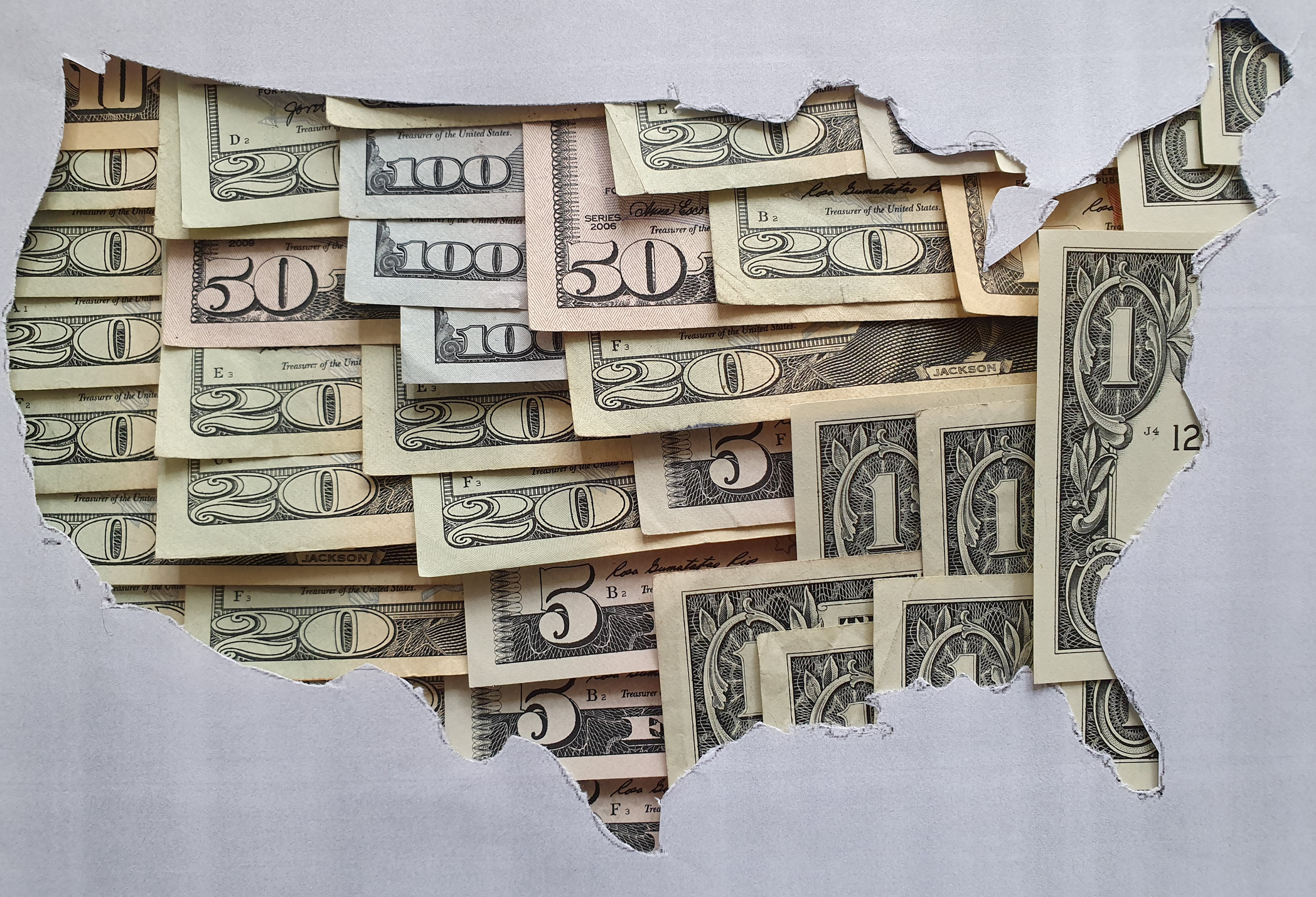
You’ve probably already thought about where you want to retire. Destinations like Florida may be popular for retirement due to tax reasons, but what places might you want to avoid because of higher tax rates?
Eight states, plus Washington, D.C., have the highest income tax rates in the country, making them perhaps less tax-favorable for retirement. However, some states on the list may exclude certain retiree income from tax, which could soften the blow. And other states offer no state taxes on Social Security.
However, before we delve into states with the highest income tax rates, let’s briefly review marginal taxes to understand how much you could pay if you reside in a high-income tax state.
What is a state marginal tax rate?
A marginal tax rate is the amount you pay for every additional dollar of a revenue stream. This means the highest tax bracket you qualify for is only paid on part of your income. States have different tax rates and tax brackets.
For example, say you have $10,000 in income. If your state has an income tax rate of 5% on the first $5,000 and 10% on income from $5,001 to $10,000, you could expect to pay:
- $5,000 x 5% = $250, plus
- ($10,000 - $5,001) x 10% = $500.
In total, you would owe about $750 in taxes. This is good to remember as we list the states with high-income tax rates, since only part — not all — of your income could be taxed at the highest rate.
States with the highest income taxes
Some states with no income tax may have higher taxes in other areas, like capital gains and property tax, or have “death taxes.” For this reason, you may want to consult with a tax professional before moving to a lower-income tax rate state.
Kiplinger used data from the Tax Foundation to identify the eight states (plus Washington, D.C.) with the highest income tax rates in 2025. Here they are.
Note: Federal tax rates apply no matter where you live in the U.S.
Vermont

Vermont income tax rate
Vermont ranks eighth among states with the highest income tax rates, at 8.75% for earners making more than $242,000 (single) and $294,600 (married filing jointly). The lowest tax rate in Vermont is 3.35%.
Below are some fast facts about Vermont’s retirement income taxes:
- 401(k) and IRA distributions are taxable.
- Vermont is one of the few states that tax Social Security benefits.
- Public and private pensions are generally taxed.
Vermont has a Social Security exemption for qualified residents, but your adjusted gross income (AGI) must be $65,000 or less (married filing jointly). The Green Mountain State also has a deduction of up to $10,000 on military retirement pay and another deduction of up to $10,000 for other types of retirement income. However, income limits apply.
Because of these exemptions, and ranking the “lowest” of the high-income tax rates, Vermont may be one of the more optimal states on this list to retire.
Massachusetts

Is Massachusetts a high-income tax state?
The top tax rate in Massachusetts is 9%, making The Bay State the seventh highest in state income taxes. However, the tax rate only applies to taxpayers making more than $1,083,150, a higher threshold than other states on this list.
Most other taxpayers in the state pay a flat income tax rate of 5%.
Here are a few fast facts about retirement income taxes in Massachusetts:
- 401(k) and IRA distributions are taxed.
- Social Security benefits are not taxable.
- Private pensions are taxable, though government and public pension plans may be tax-exempt.
So, if you aren’t a millionaire and can afford property taxes in one of the most expensive states for homeowners, you could still consider a move to Massachusetts.
Minnesota

Minnesota high income tax rate
Minnesota comes sixth on our list of states with the highest income taxes. The top tax rate in The Gopher State is 9.85% for single filers making more than $198,630 ($330,410 for married filing joint couples).
The lowest tax rate is still high at 5.35%.
Here are a few fast facts about retirement income taxes in Minnesota:
- 401(k) and IRA distributions are taxable.
- Social Security benefits are taxed.
- Public and private pensions (including federal) are typically taxed, though some may qualify for a subtraction.
Minnesota’s Social Security tax exemption could exempt part or all of your benefits from state income taxes if you make under a certain amount. For example, Social Security incomes below $108,320 (married filing jointly) or $84,490 (single filers) may qualify for a state tax exemption.
So if your retirement plan mostly relies on Social Security benefits under the exemption amounts, you may be willing to accept a higher income tax rate in Minnesota.
Oregon

What is the income tax rate in Oregon?
Oregon’s top tax rate of 9.9% ranks the Beaver State fifth on our list. While the actual percentage is “low” compared to other states listed here, more residents may qualify for the highest tax bracket as the income threshold is just $125,00 for single filers and $250,000 for married filing joint couples.
Additionally, the lowest tax rate in the state is 4.75%, which is relatively high.
Here are a few facts about tax on retirement income in Oregon:
- 401(k) and IRA distributions are taxable.
- Social Security benefits are not taxed.
- Public and private pensions are generally taxed, though federal pension income may be partially or entirely excluded from Oregon taxable income.
Because of the “low” income thresholds for the top tax rate, you might rethink potential retirement in Oregon.
New Jersey

Is New Jersey a high-income tax state?
New Jersey’s top income tax rate is the fourth highest in the nation. Anyone making more than one million dollars can expect to pay a 10.75% income tax rate, regardless of filing status. The remaining tax rates range from 1.4% to 8.97%.
Below are a few facts about the taxability of New Jersey retirement income:
- 401(k) and IRA distributions are partially taxable (income requirements apply).
- Social Security benefits and military pensions are exempt.
- Private and public pensions are partially taxable (income requirements apply).
Although New Jersey taxes most retirement benefits, retirees 62 and older may deduct a significant portion of their taxable income. The maximum deduction is up to $75,000 for single filers, $50,000 for married filing separately, and $100,000 for joint filers if your federal AGI is below $100,000. You may qualify for a partial exemption if you make less than $150,000.
Retirement in The Garden State may be more affordable if you qualify for the retirement income exclusion.
Washington, D.C.

Does Washington, D.C. have income tax?
Although technically not a state, Washington D.C. ties in rank with New Jersey for the fourth highest income tax rate at 10.75%. Like the Garden State, you’ll pay this tax if your income is over $1 million. However, the lowest rate in D.C. is much less favorable, at 4% for incomes $10,000 or less.
Here’s a quick overview of how retirement income is taxed in Washington, D.C.:
- 401(k) and IRA distributions are taxable.
- Social Security benefits are not taxed.
- Public and private pensions (including government) are taxed.
Apart from a government pension income deduction, D.C. offers few ways to save on retirement income tax. Also, The Nation’s Capital is included on the list of states with scary estate taxes, meaning your heirs might pay more in tax, too. For these reasons, D.C. may not be your top retirement choice.
New York

New York income tax rate
New York has the third highest income tax rate in the U.S. at 10.9% for incomes over $25 million. But that’s not all. Localities may also impose income taxes. For instance, New York City charges an additional income tax of up to 3.876%.
And even if your earnings are lower — $8,500 (single filer) or $17,150 (married filing jointly) — you’ll still have a 4% tax rate on income.
Here are a few facts about New York taxes on retirement:
- 401(k) and IRA distributions are taxable.
- Social Security benefits are not taxable.
- Federal, New York State, local, and military retirement pensions are exempt.
The Big Apple allows some taxpayers 59.5 years and older to deduct up to $20,000 of qualified retirement income, but depending on that exemption might not be enough to retire in New York under the highest tax rate.
Hawaii’s high-income tax rate

Hawaii’s high-income tax rate
It may come as no surprise that Hawaii has the second-highest income tax rate in the nation given its high cost of living: Groceries, housing, and utilities tend to be significantly higher than the national average.
Single filers making more than $325,000 (or $650,000 married filing jointly) can expect to reach the highest tax rate of 11%. However, that income rate drops to 1.4% for single taxpayers making less than $9,600 (or $19,200 for married couples).
Here are a few facts about Hawaii’s taxes on retirement income:
- 401(k) and IRA distributions are taxed.
- Social Security benefits are exempt.
- Military, federal, state, and local pensions are not taxable (including out-of-state government pensions). However, you must not have made contributions to the plan.
The Aloha State also charges a 10% to 20% tax on estates worth more than $5.49 million. So if you want to leave something substantial for your heirs, you might not want to live and retire in Hawaii.
California

California: The highest income-taxed state
California has the highest income tax rate in the U.S., with a staggering 13.3% on income over $1 million for single filers, and $1,442,628 for taxpayers married filing jointly.
But you’ll likely pay more than that if you’re a millionaire. Thanks to California’s tax expansion, the 2025 top rate is increased to 14.5% due to the state eliminating its wage cap on employee payroll tax for State Disability Insurance (SDI).
But if you don’t make millions, you can pay as low as 1% on income up to $10,756 for single filers (up to $21,512 for married filing joint couples).
Here are a few other facts about retirement income taxes in California:
- 401(k) and IRA distributions are taxed.
- Social Security benefits are tax-exempt.
- Pension income is taxable.
California also exacts a 2.5% state penalty on early distributions from retirement plans, annuities, and IRAs. So, if you’re looking to save on income taxes in retirement, the state with the highest income tax rate may not be right for you.







